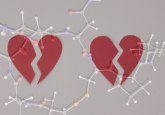Broccoli balancing the brain

A series of studies and experiments conducted between 2017 and 2019 has culminated in the identification of a compound, abundant in broccoli sprouts, called sulforaphane that is capable of regulating glutamate levels in the brain, providing a potential treatment for people with schizophrenia.
Twenty-one million people around the globe are living with schizophrenia, a condition that results in hallucinations, delusions and disordered thinking, feeling and behavior. This is usually treated with antipsychotic drugs which are not completely curative for a lot of patients and also come with a host of metabolic side effects.
In order to address this lack of comprehensive treatment, a team of researchers from Johns Hopkins School of Medicine (MD, USA) set out to identify metabolic differences in the brains of people with schizophrenia, highlighting possible therapeutic targets. The team conducted magnetic resonance spectroscopy (MRS) to compare five brain sections from 91 healthy controls and 81 people who had experienced an episode of psychosis, a common sign of schizophrenia, in the last 24 months.
This study found that there was a significant difference in glutamate levels in the anterior cingulate cortex of -4%, on average, in the brains of the test group when compared to the controls. A 3% and 8% reduction in glutathione in the same region and in the thalamus respectively, were also found to be statistically significant. Glutamate is a key signaling molecule in the brain and has previously been linked to psychological conditions. Glutamate is also one of three constituents of glutathione.
“We are hoping that we will one day make some mental illness preventable to a certain extent.”
Building on the results of this study, the researchers set out to examine the management and effect of glutamine in the brain. The first effect the researchers explored was the storage and regulation of concentrations of glutamate. Postulating that glutathione may be involved in the storage of glutamate, the researchers exposed rat brain cells to the established drug L-Buthionine sulfoximine to block the enzyme that converts glutamate to glutathione, leading to a rise in glutamate usage. This resulted in the increased speed and frequency of neuronal firing, akin to the activity of neurons in the brains of patients with schizophrenia.
Reversing the experiment, the team used sulforaphane, found in broccoli sprouts, which interacts with the transcription factor Nrf2 to increase the abundance of the enzyme that converts glutamate to glutathione. This resulted in less available glutamate and therefore decreased neuronal firing, driving the neurons to behave less like those of patients with schizophrenia.
“We are thinking of glutathione as glutamate stored in a gas tank. If you have a bigger gas tank, you have more leeway on how far you can drive, but as soon as you take the gas out of the tank it’s burned up quickly. We can think of those with schizophrenia as having a smaller gas tank,” explained Thomas Sedlak (Johns Hopkins) lead author on two of the papers.
To examine the efficacy of sulforaphane in humans the research team prescribed nine healthy volunteers with two capsules each of 100 micromolar sulforaphane to be taken daily for 7 days. Using MRS at the end of the seven days, the participants were found to have a 30% increase in glutathione levels in the participants’ brains. Besides occasions of bloating and gas, the sulforaphane capsules were well-tolerated.
Additional research is required to establish the safety of use in patients with psychosis and to establish an optimal dose and regime. The researchers were keen to highlight that the studies cannot be used to validate the use of over-the-counter sulforaphane supplements for the treatment of schizophrenia, however, they are excited by the prospects that the research raises. “For people predisposed to heart disease, we know that changes in diet and exercise can help stave off the disease, but there isn’t anything like that for severe mental disorders yet,” said Sedlak. “We are hoping that we will one day make some mental illness preventable to a certain extent.”





